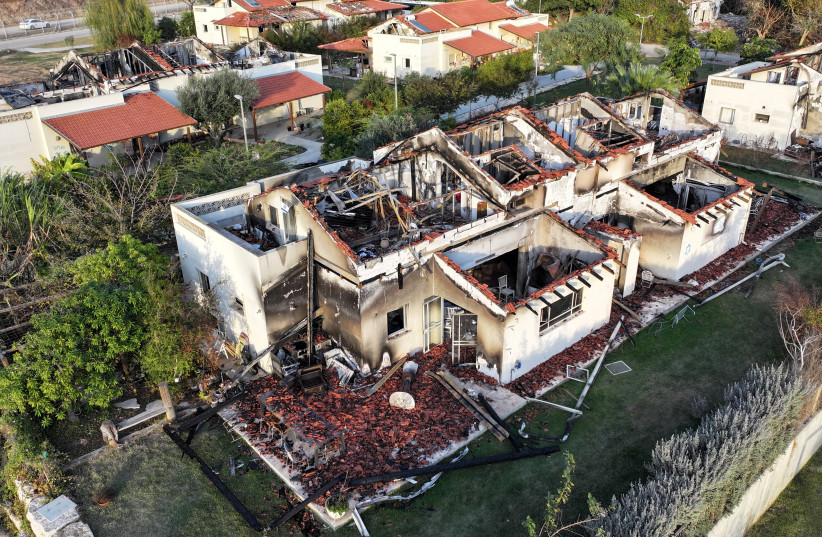The appropriation of October 7 sexual violence for political reasons and the discussion of this violence as being nationalistic or the harm as being national harm take away from the woman who was abused, clinical psychologist Dr. Zivya Seligman said Tuesday.
Speaking at a conference hosted by the Association of Rape Crisis Centers in Israel, Seligman, who is the founder and director of the Lotem Center for Treatment of Sexual Trauma, described experiences from being on the team tasked with treating victims of sexual violence that took place on October 7.
Turning harm done to the victims into harm done to the nation takes the victim out of the equation, erases her, and turns her into a public object, she said.
Support for these survivors that comes from the community must be real and must be centered around caring for the victims, she said, adding that she fears society’s reaction has mainly been focused on what happened to the nation rather than what happened to the women.
“The suffering of the victims, those hurt, are an instrumental tool” for propaganda, media, and hasbara [public diplomacy] purposes, Seligman said.

“The manner in which it is done creates dehumanization, making them victims once again,” she said. This does not only happen in war times, but generally, she added.
Ethical issues in treatment of victims
“The repeated invasiveness, turning all the victims into some sort of reality TV show, is so dangerous and so unethical. We must take a stance on this.”
Seligman also touched on the obligations of treatment providers, saying that “my obligation is to not say anything.”
“As a psychologist, trust and secrecy are the most basic things.” This means that there is a serious ethical problem when it comes to treatment professionals taking part in investigations, she said. “People place their trust in us and know we are secret keepers,” she explained.
Talking about the treatment of released hostages, Seligman said that when it came to being treated in hospitals, the staff gave them a large amount of space and control, but when people from the outside came to question them, “we lost control of it.”
This included security officials “dictating the narrative” to survivors, Seligman said. “If [the returned hostages] saw their captors in a positive light, [security officials] immediately saw this as Stockholm syndrome, and not as there being one righteous man in Sodom,” she said.
Seligman viewed this as harming the right to speak, voice, and autonomy of the released hostages, saying it was hard to watch.
She also touched on some of the challenges inherent in gathering evidence of sexual violence.
“The most direct evidence of a traumatic event may be expressed in a total lack of ability to recognize [the event],” she explained. “It can take a long time, many years, until people who have been hurt find a way to tell, if they ever do. We must create the right conditions [for them to tell] and wait.
“It must not be assumed that only the remains of bodies will bear witness. It also must not be assumed that [offenses] did not happen. We must understand that the process of bearing witness to sexual trauma has its characteristics, and they are very different from any other experiences.
“If we think that we can get testimony through questioning, especially on sex offenses, that is simply to misunderstand this field,” she said.
“Most of those harmed, even if they sketch the event in a certain way, take years to give testimony, if they are even able to tell about the sex offense, the rape, the attack.”
